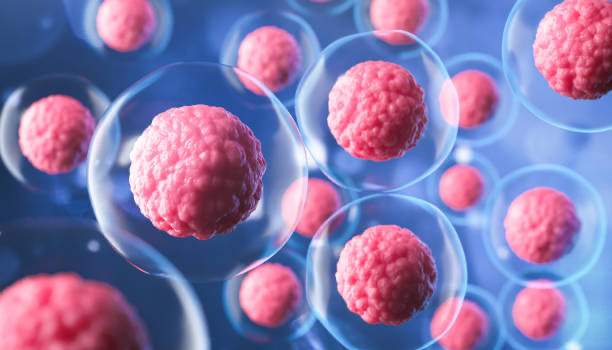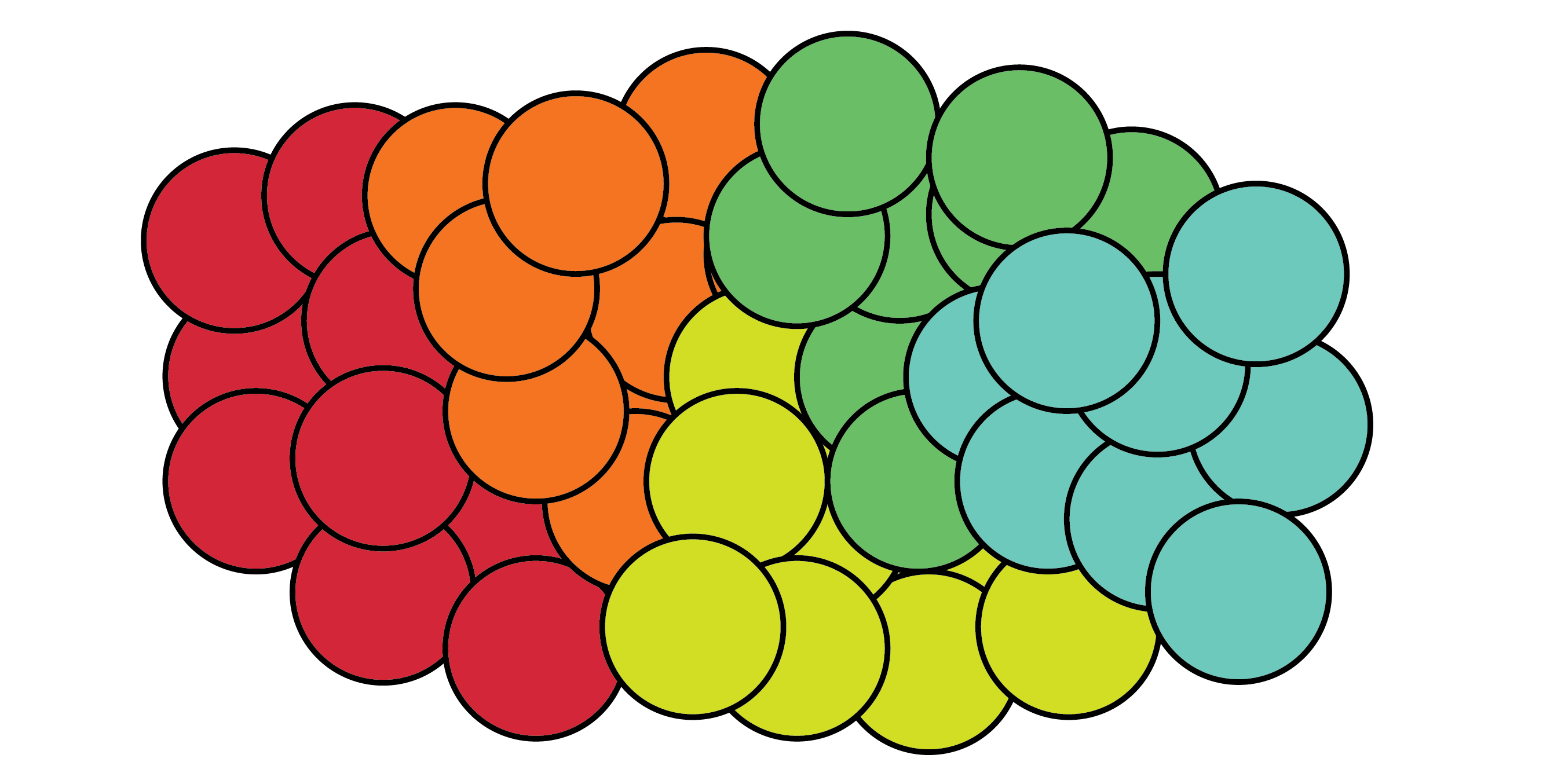
What are cellular therapies?
Cellular therapies are both and old and new. They represent an exciting type of treatment for cancer using cells instead of chemotherapy and radiation. Together with our collaborators, we aim to improve cellular therapies for our patients in the following areas:
- Hematopoietic cell transplantation (HCT) - commonly refered to as a "bone marrow transplant", is the process of replacing a patient's blood forming system. The use of HCT for the treatment of cancer was pioneered by E. Donnell Thomas at the Fred Hutch more than 50 years ago. Graft-versus-host disease (GVHD) is a devastating side effect of HCT in which the donor immune cells attack the tissues of the recipient. Together with collaborators in the Hill lab, we are currently working to:
- Identify novel mechanisms of antigen presentation in the gut that contribute to GVHD
- Define biomarkers in peripheral blood that may predict the development of chronic GVHD
- DIscover novel T cell subsets that contribute to GVHD
-
During HCT, donor immune cells will attack and kill recipient tumor (or leukemia) cells in ways that are not completely understood. However, donor T cells with specificity for tumor can eventually lose their tumor killing properties or fail to expand their numbers sufficiently. With our collaborators in the Bleakley and Hill labs, we are working to understand these failures more deeply.
Recent Research
Graft-versus-Host Disease
Eomesodermin+ CD4+ T Cells Drive Curative Immunotherapy
In collaboration with the Hill Lab, we identified a critical role for Eomesodermin-expressing CD4+ T cells in achieving curative outcomes in immunotherapy, revealing new mechanisms for enhancing anti-tumor responses while managing GVHD.
Zhang P et al. (In Press) Immunity PMID: 41043413
Microbiota-Driven T Cell Selection in GVHD
Together with our collaborators in the Hill and Bleakley Labs, we demonstrated that the gut microbiota dictates T cell clonal selection patterns that augment graft-versus-host disease after stem cell transplantation, identifying microbiome-immune interactions as therapeutic targets.
Yeh AC et al. (2024) Immunity 57(7): 1648-1664.e9 PMID: 38876098
IL-17 and CSF-1 Signatures in Chronic GVHD
With the Hill Lab, we defined pathogenic IL-17 and CSF-1 gene expression signatures that characterize chronic graft-versus-host disease, providing biomarkers for disease monitoring and potential therapeutic targets.
Boiko JR et al. (2025) Blood 145(19): 2214-2228 PMID: 39977705
Rescuing Memory T Cells During Calcineurin Inhibition
In collaboration with the Hill Lab, we discovered that calcineurin inhibition rescues alloantigen-specific central memory T cell subsets that promote chronic GVHD, explaining paradoxical effects of immunosuppression on long-term disease outcomes.
Wang Y et al. (2024) J Clin Invest 134(11) PMID: 38828727
Adoptive T Cell Therapy & Graft-versus-Tumor
HA-1-Targeted TCR T-Cell Therapy
In collaboration with the Bleakley and Riddell Labs, we demonstrated clinical efficacy of HA-1-targeted T-cell receptor T-cell therapy for treating recurrent leukemia after hematopoietic stem cell transplantation, establishing a new therapeutic approach for relapsed disease.
Krakow EF et al. (2024) Blood 144(10): 1069-1082 PMID: 38683966
Functional TIM-3+ Exhausted T Cells
Working with the Hill and Riddell Labs, we revealed that TIM-3+ CD8 T cells with a terminally exhausted phenotype retain significant functional capacity in hematological malignancies, challenging conventional understanding of T cell exhaustion.
Minnie SA et al. (2024) Sci Immunol 9(94): eadg1094 PMID: 38640253
Targeting Stem-Like Memory T Cells
Together with the Hill Lab, we demonstrated that depletion of exhausted alloreactive T cells enables targeting of stem-like memory T cells to generate tumor-specific immunity, providing a strategy to enhance graft-versus-tumor effects.
Minnie SA et al. (2022) Sci Immunol 7(76): eabo3420 PMID: 36240285
IFN-γ and Donor Leukocyte Infusions
With our collaborators, we showed how IFN-γ enhances donor leukocyte infusions for treating relapsed myeloblastic malignancies after allogeneic hematopoietic stem cell transplantation.
Ito S et al. (2025) JCI Insight 10(9) PMID: 40131369
CAR-T Cells Enhanced by Immunogenic Chemotherapy
In collaboration with the Riddell Lab, we demonstrated that immunogenic chemotherapy enhances CAR-T cell recruitment to lung tumors and improves antitumor efficacy when combined with checkpoint blockade.
Srivastava S et al. (2021) Cancer Cell 39(2): 193-208.e10 PMID: 33357452
T Cell Biology & Engineering
CD27 Signaling Promotes Memory Formation
Together with the Riddell and Henikoff Labs, we discovered that signaling via a CD27-TRAF2-SHP-1 axis during naive T cell activation promotes memory-associated gene regulatory networks, providing insights for engineering superior T cell products.
Jaeger-Ruckstuhl CA et al. (2024) Immunity 57(2): 287-302.e12 PMID: 38354704
NOTCH1 Enhances CD4+ T Cell Responsiveness
In collaboration with the Riddell and Bernstein Labs, we showed that NOTCH1 signaling during CD4+ T-cell activation alters transcription factor networks and enhances antigen responsiveness, revealing targets for optimizing T cell therapies.
Wilkens AB et al. (2022) Blood 140(21): 2261-2275 PMID: 35605191
IL-2 Enhances Regulatory T Cell Persistence
Working with collaborators at Emory and the University of Minnesota, we demonstrated that IL-2 enhances ex vivo-expanded regulatory T-cell persistence after adoptive transfer, improving strategies for Treg-based therapies.
Furlan SN et al. (2020) Blood Adv 4(8): 1594-1605 PMID: 32311015
Thymic Regulatory T Cells Without Exhaustion
In collaboration with the Blazar Lab, our analysis showed that multiply restimulated human thymic regulatory T cells express distinct signature transcription factors without evidence of exhaustion, enabling robust Treg expansion protocols.
Hippen KL et al. (2021) Cytotherapy 23(8): 704-714 PMID: 33893050
This work is conducted in collaboration with the Hill Lab, Riddell Lab, Bleakley Lab, and Henikoff Lab at Fred Hutch
 Furlan Lab
Furlan Lab